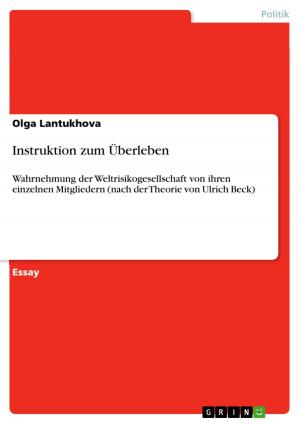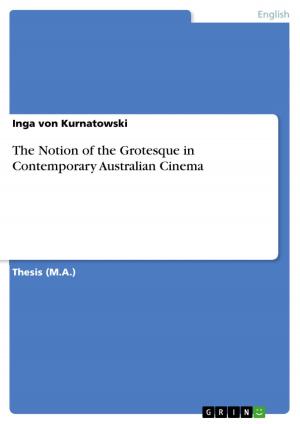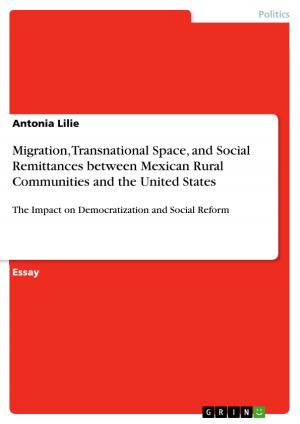The protection of traditional indigenous knowledge by intellectual property law
Nonfiction, Reference & Language, Law, International| Author: | Julia Honds | ISBN: | 9783638878920 |
| Publisher: | GRIN Publishing | Publication: | December 18, 2007 |
| Imprint: | GRIN Publishing | Language: | English |
| Author: | Julia Honds |
| ISBN: | 9783638878920 |
| Publisher: | GRIN Publishing |
| Publication: | December 18, 2007 |
| Imprint: | GRIN Publishing |
| Language: | English |
Research Paper (undergraduate) from the year 2006 in the subject Law - Comparative Legal Systems, Comparative Law, grade: A-, Victoria University of Wellington (Faculty of Law), 47 entries in the bibliography, language: English, abstract: Indigenous people often know a lot about the healing properties or other useful characteristics of their indigenous plants. This knowledge usually has been passed on within the indigenous community from generation to generation and is therefore regarded as traditional knowledge. This traditional knowledge is of great value for the pharmaceutical industry. Accordingly, it has been explored, used as the basis for subsequently patented in-ventions, and sometimes misappropriated by pharmaceutical companies from the 'developed' world. This essay seeks to provide an overview of the problems and issues that arise where traditional knowl-edge meets the 'Western' intellectual property regime. The questions that are sought to be answered are: Why should traditional knowledge be protected as intellectual property and how could this be done? Many approaches have been made, both on an international and a national level. Several of these solutions will be presented and discussed in this essay. It will be seen that already existing intellectual property rights are not suitable for the protection of traditional knowledge. Compared with this, the implementation of safeguards within patent applica-tion proceedings seems to be more appropriate and effective. However, this approach turns out to be not com-prehensive enough. Therefore, this essay recommends the protection of traditional knowledge by an intellectual property right sui generis, specially designed for that purpose. This solution is favourable because it is the most complete one, is able to address all issues in an appropriate way, and can strike a balance between the involved conflicting interests.
Research Paper (undergraduate) from the year 2006 in the subject Law - Comparative Legal Systems, Comparative Law, grade: A-, Victoria University of Wellington (Faculty of Law), 47 entries in the bibliography, language: English, abstract: Indigenous people often know a lot about the healing properties or other useful characteristics of their indigenous plants. This knowledge usually has been passed on within the indigenous community from generation to generation and is therefore regarded as traditional knowledge. This traditional knowledge is of great value for the pharmaceutical industry. Accordingly, it has been explored, used as the basis for subsequently patented in-ventions, and sometimes misappropriated by pharmaceutical companies from the 'developed' world. This essay seeks to provide an overview of the problems and issues that arise where traditional knowl-edge meets the 'Western' intellectual property regime. The questions that are sought to be answered are: Why should traditional knowledge be protected as intellectual property and how could this be done? Many approaches have been made, both on an international and a national level. Several of these solutions will be presented and discussed in this essay. It will be seen that already existing intellectual property rights are not suitable for the protection of traditional knowledge. Compared with this, the implementation of safeguards within patent applica-tion proceedings seems to be more appropriate and effective. However, this approach turns out to be not com-prehensive enough. Therefore, this essay recommends the protection of traditional knowledge by an intellectual property right sui generis, specially designed for that purpose. This solution is favourable because it is the most complete one, is able to address all issues in an appropriate way, and can strike a balance between the involved conflicting interests.















